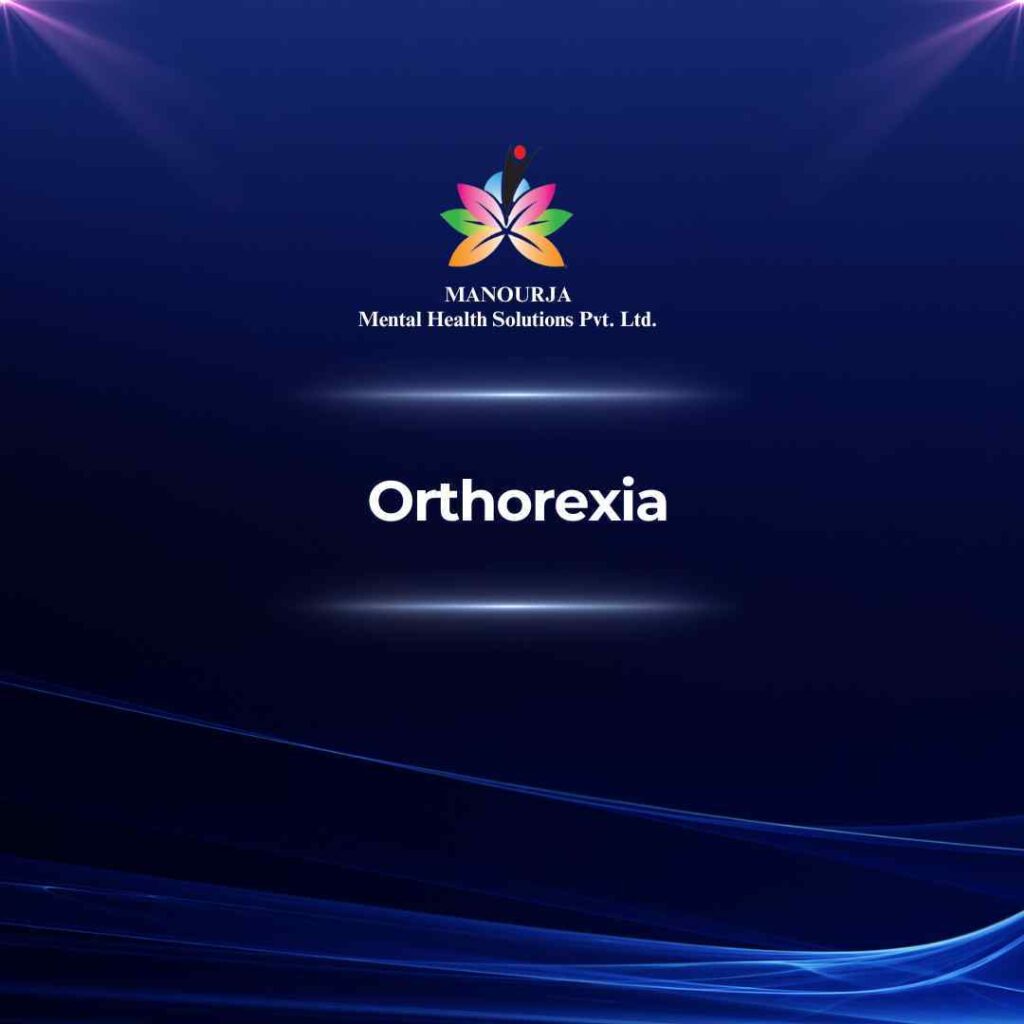Orthorexia

Orthorexia is an eating disorder characterized by an excessive preoccupation with eating healthy food. The term is derived from the Greek word “ortho,” which means “right” or “correct,” and is a disorder associated with severe dietary restrictions inspired by a compulsive desire to eat pure or “perfect” food. Unlike other eating disorders that focus primarily on quantity of food or body image, orthorexia revolves around the perceived quality of food.
Meaning
Orthorexia involves an unhealthy obsession with healthy eating, to the extent that it becomes detrimental to a person’s well-being. Individuals with orthorexia are obsessively fixated on food quality and purity, often at the expense of their social life, mental health, and physical health due to nutritional imbalances.
Characteristics
- Obsession with Healthy Eating: Individuals spend excessive amounts of time and thought devoted to what food might be served at upcoming events, planning their meals, and thinking about how food might affect their body in various ways.
- Severe Dietary Restrictions: This may involve eliminating entire food groups, such as fats, sugars, carbs, animal or dairy products, and an obsession with the virtues of eating raw, vegan, or other “clean” diets.
- Emotional Distress: Food choices become so restrictive in both variety and calories that health suffers, often leading to nutritional deficiencies. Failure to adhere to strict dietary rules often causes guilt or feelings of impurity.
- Social Isolation: The eating habits can disrupt normal social activities, such as eating out or meals with family, because of the strict rules they impose on themselves.
Forms
Orthorexia does not have clinically defined subtypes but can manifest in various ways depending on the individual’s specific food beliefs. Some may focus on the toxicity of food additives, while others might be obsessed with the health benefits of certain superfoods or macrobiotic diets.
Treatment
Treating orthorexia often requires a approach including nutritional, psychological, and sometimes medical interventions:
- Psychological Counseling:
- Cognitive Behavioral Therapy (CBT): Helps to address and change the thought patterns that contribute to the disorder, such as perfectionism and control issues.
- Exposure Therapy: Can be used to gradually decrease anxiety surrounding certain “forbidden” foods and situations.
- Acceptance and Commitment Therapy (ACT): Focuses on increasing psychological flexibility and developing a more functional relationship with food.
- Nutritional Counseling: A dietitian can help by creating a meal plan that ensures nutritional needs are met without the strict constraints imposed by the individual’s own rules. Education about balanced eating is crucial.
- Medical Assessment: Monitoring for physical effects of the disorder such as malnutrition, electrolyte imbalances, or other health issues resulting from restrictive dieting.
- Support Groups: Connecting with others facing similar challenges can provide emotional support and practical strategies for recovery.
- Family Therapy: Educating and involving family members can help them understand the disorder and provide support without enabling unhealthy behaviors.
Orthorexia, while not officially recognized in standard diagnostic manuals like the DSM-5, is increasingly acknowledged by professionals as a serious and growing problem. Treatment focuses on restoring a balanced relationship with food and addressing any co-occurring psychological issues such as anxiety or obsessive-compulsive disorder.
At MANOURJA, we believe in the transformative power of counseling. Our experienced therapists offer a safe and supportive space where you can explore your thoughts, emotions, and challenges. Through personalized counselling sessions, we’ll work together to develop coping strategies, build resilience, and achieve lasting positive change. Discover the path to a healthier, happier you with MANOURJA counselling services.
MANOURJA Rehabilitation Services
At MANOURJA, we’re dedicated to helping you in rebuild your life, after difficult times. Our rehabilitation services focus on understanding what you need to move forward, whether you’re recovering from addiction, trauma, or any psychological – social challenges. We create personalized plans, that are all about helping you, regain your strength and find hope again. With a caring team by your side, you’ll have the support to make real progress and take steps toward a brighter, healthier future.
